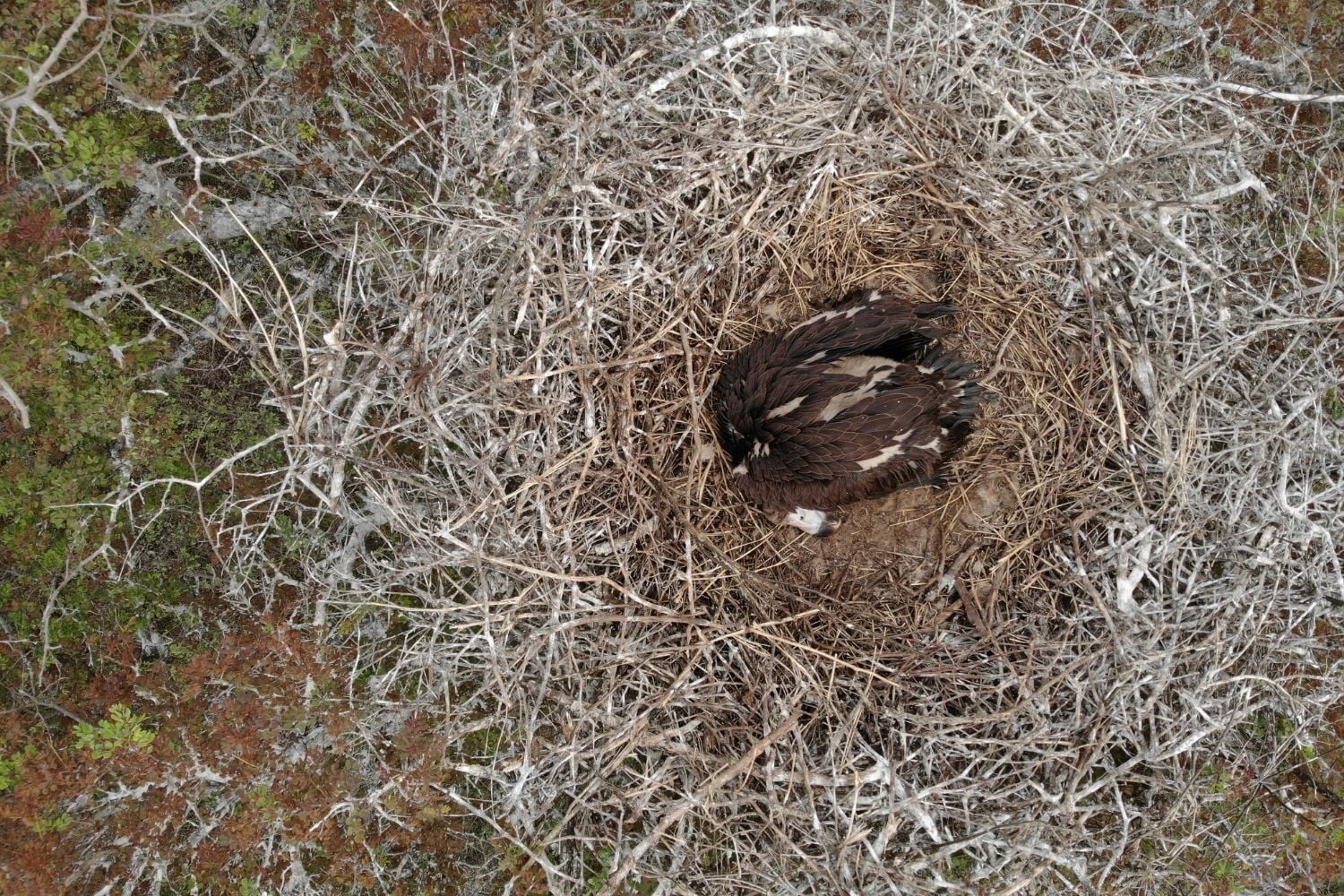Only six active vulture nests were counted in KZN, with poisonings continuing unabated.

A dead lappet-faced vulture found in the northern breeding cluster of KwaZulu-Natal. Picture: PJ Roberts, Wildlife ACT
KwaZulu-Natal, like Africa and the rest of the planet, continues to experience vulture declines, which poses a serious threat to wildlife.
Aerial surveys conducted by Ezemvelo KZN Wildlife and Wildlife ACT recently yielded distressing results, confirming the province’s vulture population had declined by 60%.
Only six nests of the large lappet-faced vulture were counted, down from 15 nests counted last year.
This species is listed as endangered on the IUCN red list.
Ezemvelo KZN Wildlife large mammal and bird scientist, Brent Coverdale, said zero white-headed vultures were bred in KZN this year, and that the lappet decline is “of grave concern”.
ALSO READ: ‘A vulture crisis could mean a human crisis’, wildlife experts warn
“This decline is most probably attributed to the numerous poisoning events that have occurred in the latter part of 2020 and throughout 2021,” Coverdale said.
Vulture poisonings
A lappet-faced vulture was recently reported as being poisoned in the northern breeding cluster.
Upon checking up on the nearest known nest of this species to see if the chick was still alive, and if any adults were present, the chick was found dead, likely due to starvation.

It is believed both its parents likely died.
This nest was the only one known to be active in the breeding cluster, and belonged to a vulture that was ringed as a chick in 2016. It was also fitted with a solar-powered GPS tracker, and patagial tags, in May last year.
But the GPS unit dropped off the grid in October, and the bird had not been seen since.
There is a strong possibility that the remaining parent tried to rear the chick until it was also poisoned.
As such, only four known lappet-faced vultures have fledged in KZN this breeding season, with the series fast following the path of the critically endangered white-headed vulture.
Why are vultures important?
The integral role vultures play in ecosystems as scavengers makes these large birds invaluable to the environment.
Their job is to dispose of rotting carcasses, which reduces the spread of diseases to other wildlife, livestock and humans.
ALSO READ: Species in crisis: Vultures on brink of localised extinction
This is especially important in KZN, with the province’s mixed land-use of agriculture, residential and protected areas.
“This crucial ecosystem service that vultures provide in our environment is grossly underestimated and goes largely underappreciated as, without the presence of vultures, carcasses will remain exposed to the environment for weeks.
“Vultures therefore play a critical role in abating the ever-increasing global risk of pathogen spill overs to humans.”
If you would like to donate to conservation efforts conducted through Project Vulture in Zululand, Ezemvelo KZN Wildlife and Wildlife ACT, click here.
And if you spot any tagged vultures, you can report your sightings by clicking here.





